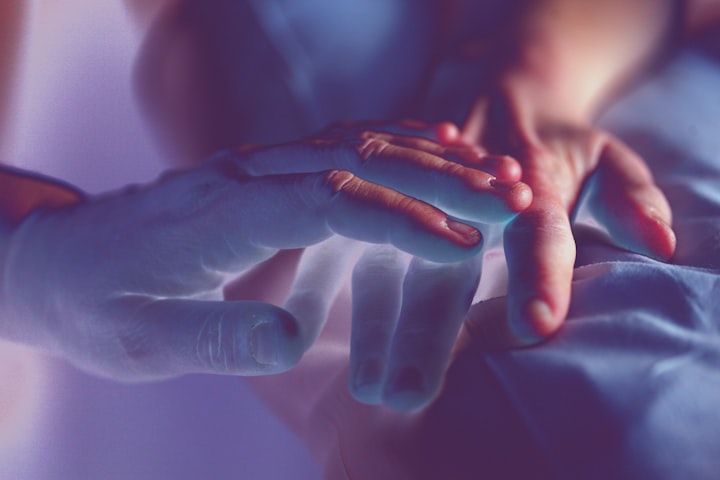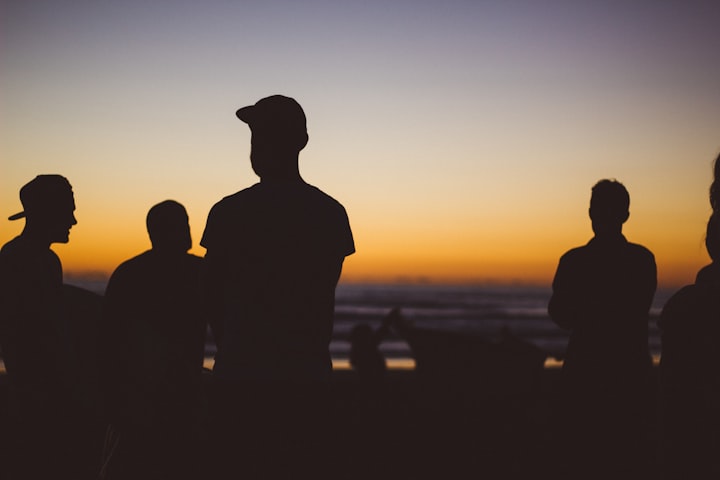
My grandfather was a medic in the Secret War. It ran from 1961 to 1975, mostly in parallel with the Vietnam War. At one point, he’d been lost down the Mekong River, swept by the dark currents as he was ferrying others across. My uncles searched for him for days downriver, dodging the Pathet Lao the entire time. After a week, they took grandpa for dead, but miraculously, a few months later, he found his way back to their village. He’d washed ashore several dozen miles away and without any way to communicate, he’d had to hike his way back.
In the late 1970’s, along with a few of his sons and my grandma, he made it to America as part of the early wave of Hmong refugees. He’d always been a quiet, stoic man with my grandmother being his counterbalance. She was far more outspoken. I remember him sitting at the piano with my little cousin, fingering out the keys to the birthday song and singing it note by note in his thickly accented English. He’d always been old to me, but looking back at some photos of him from that time, he couldn’t be much older than I am now. He had a full head of dark hair and a long lean face that my father had inherited. Same straight nose, same jawline, same stubborn chin.
Although grandpa had been frail for years, when my father was dying of cancer, grandpa made the thousand-mile trip to come say goodbye. He spent those scant few days holding back tears and laying down in our living room while my dad was undergoing hospice care. My dad would be the first son of his to die; and in the last few years, it felt like too many who were younger than him were passing too soon. He’d lost several of his younger brothers, and now, he was losing his son. I spent one night sitting by his side, watching as his shallow breaths rose in his chest, mapping out the dark blue veins in his hand underneath the paper-thin skin.
“Grandpa, do you need anything?” I asked softly. His eyes were closed but he lifted his bony hand, the fingers long and tapered.
“No,” he said in his hoarse voice, unused for so long, “No, I just want to sleep.”
“Okay,” I replied, “I’m right here if you need something.”
But I knew what he needed, I couldn’t give. He was here only to say goodbye to his second son. His wife, my grandma, had already passed several years ago and so many of his siblings had as well; and as I sat there, holding my vigil over his willowy body, tears slipped out from his closed eyes to trail along his temple and disappear into his hairline.
Beyond the rickety frame of my old house, the coming autumn wind howled low into the evening like a spirit song calling from across the ocean. Grandpa made no sounds aside from his shallow breaths, but in this man who rarely showed emotion, his fear and sadness leaked out across his face in the hollowness of that threadbare living room.
Throughout my life, I’d had few interactions with my grandfather, and even fewer still where it was just him and me. On that night though, I was alone with him, watching the gentle rise and fall of his chest, memorizing the wispy gray hairs on his head and the short stubble that was peaking through on his chin. Even when he was deep in sleep, I dared not move from my seat as we waited out the hours until my family would return home from their outing. There were so many details I didn’t know about him, so much history captured in that frail body; and yet, now that I was old enough to record those stories, he was too old to have the energy or the memory to share them with me.
After grandpa returned to his home, my dad lost his battle with cancer just a few months later. Grandpa wasn’t able to come back for the funeral. It was just too hard.
This man had survived the ravages of war. He’d walked through fields of bombs and bloody and broken bodies, seen friends and relatives fall around him, crossed an ocean to start a new life, but it would be one careless act that would bring the end.
My uncle had brought home COVID-19.
The uncle that grandpa lived with was his youngest son (we’ll call him Jerry) and Jerry owned a business. At his business, Jerry was lax about social distancing and wearing masks. All it took was one sick employee to spread it to all the others and for Jerry to bring it home to grandpa. One person infected more than five families.
Within two weeks of grandpa and Jerry testing positive, grandpa was admitted to the emergency room. Within 24 hours of being admitted, grandpa would be gone.
Through a Webex call, our family said our goodbyes, watching as tubes helped grandpa breathe, his lips pale and dry, gasping shallow, small breaths. Occasionally, the nurse would come to administer another dose of painkillers to keep him comfortable. We were on hospice watch now, just waiting and talking to grandpa in pained voices.
“Please don’t go, dad, please stay with us.”
“Uncle, come back. It’s not your time yet.”
“Grandpa, I love you so much. You’re so cherished. I remember how you and grandma would come pick us up from school.”
Most waited until the small hours of the morning, everyone spread across the United States in different time zones. Eventually, exhaustion set in. There was no telling how long the wait would be. Perhaps hours. Maybe another day.
“The Secret War was easier than COVID-19,” one of my aunts say. “At least during the war, we could see our enemy.”
Long after most had left the call, only an aunt, my little sister, and I remained, making small talk to break the silence as we waited. A few cousins would jump on and off the call in the next few hours. Eventually, the nurse reappeared on screen and I asked her for an update.
“His oxygen level is at 50%,” she said. “It won’t be long now.”
That night, I watched my grandpa take two gasps for air before his chest settled for the last time. His cheeks were sunken in from age, his face pale under the fluorescent light. On his head, the familiar wispy gray hairs cut short and spiky. The heart rate monitor began one long, steady beep, signaling that his heart had stopped, yet it looked as though he were just sleeping, his face peaceful.
I looked at the timestamp in the corner of my monitor. 1:28 AM Pacific Standard Time. November 20, 2020. The nurse appeared again, her eyes sad from beyond her face shield.
“I’m so sorry for your loss,” she said as she turned off the life-monitoring machines around him. “You can stay on the call as long as you’d like and say your good-byes.”
My aunt and I started making phone calls to relatives, waking up many from fitful sleeps. For two more hours, we would sit and watch his still body, answering calls and contacting those we could.
In the end, at 3:30 AM, the nurse returned. She needed to end the Webex so she could undress grandpa’s body and clean him for the morgue to pick him up; and as she moved to end the call, a sense of urgency rushed through me. I pressed my palm up to my computer monitor. I wanted her to wait, to give me one more minute. I hadn’t said anything to him yet. I’d let everyone else speak, but I hadn’t said goodbye. I’m not good at goodbyes.
“Wait,” I said even as the screen began to blink. My hand slid across my monitor where my grandpa’s forehead was. “Goodbye, grandpa,” I sobbed as the screen blinked green and then black. In that moment came the end of a generation for my family. It was the closing of a chapter, a story left untold in so many ways and now lost to the spirits.
In the days to come, many will retell some of grandpa’s stories, tracing his life back in memories of boyhood, of war, of resettlement, and finally of his loss. And perhaps even now, he’s halfway to where grandma and my dad are waiting, where his brothers and sisters are waiting. In our culture, it is believed that the soul will be reincarnated, that we’ll return to a better life than the one we lived previously, and in so believing, perhaps then grandpa, grandma and my dad will return to a life of less pain and less struggle.
And perhaps, in the next life, we will all recognize each other once again.
About the Creator
Nev Ocean
Fantasy, romance, fiction author.






Comments
There are no comments for this story
Be the first to respond and start the conversation.